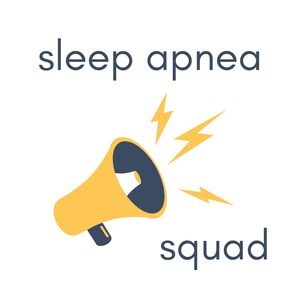LOS ANGELES, Nov. 21, 2024 /PRNewswire/ -- A groundbreaking study published in Sleep Medicine underscores the profound impact of social connections on individuals living with narcolepsy and idiopathic hypersomnia (IH). With over 1,300 respondents from 38 countries, this survey reveals that knowing someone with the same diagnosis was significantly associated with feeling supported and adjusting to life with these chronic sleep disorders.
Key findings from the study include:
- Limited Initial Connection: At the time of diagnosis, over 91% of participants did not know anyone with the same condition.
- Barriers to Connection: Even years after diagnosis, 37.2% of respondents still did not know anyone with the same condition at the time of the survey.
- Adjusting to Diagnosis: Only 32.3% of respondents felt supported in adjusting to living with narcolepsy or idiopathic hypersomnia.
- Significant Impact of Connection: 80.7% of respondents reported a positive impact from knowing others with the same diagnosis, which was strongly associated with feeling supported.
- Demographic Insights: Younger individuals (18–30 years) and those who were married reported greater perceived support, while individuals with idiopathic hypersomnia or narcolepsy type 2, and those living outside the United States, reported lower support levels.
Full survey results and methodology can be viewed via this link.
Narcolepsy and idiopathic hypersomnia are chronic sleep disorders characterized by excessive daytime sleepiness and other serious symptoms. Despite their impact, these conditions remain underdiagnosed and misunderstood, often leading to stigma and delays in diagnosis and care.
"No one diagnosed with narcolepsy or idiopathic hypersomnia should have to feel alone," said Julie Flygare, JD, President & CEO of Project Sleep and lead author of the study. "While extensive research has highlighted the negative effects these conditions have on quality of life, this new research speaks to an underrecognized aspect of patient experience – the social isolation after receiving a diagnosis and the potential power of finding others who share similar experiences."
Call to Action for Clinicians
The study underscores the importance of integrating social support into patient-centered care models and encourages healthcare providers to ask patients, "Do you know someone living with the same condition?" as a way to assess unmet social needs. Clinicians are urged to connect patients with nonprofit organizations which offer resources to foster community and provide education and empowerment for patients and families.
"This is not tomorrow's care, this is how we must start delivering care today," stated Dr. Anne Marie Morse, DO, Director of Pediatrics Neurology at Geisinger Medical Center and a co-author of this study. "Let this be a call to action to our clinical community that we need to support those who trust us as care partners to help them as individuals, just like us, trying to navigate life toward feeling included and empowered."
Patient-Driven Collaboration
Led by Project Sleep, a nonprofit raising awareness of sleep health, sleep equity, and sleep disorders, the survey was designed by a multidisciplinary team including a person living with narcolepsy, patient community leaders, clinicians, and researchers. Project Sleep extends huge thanks to the research team and to the individuals who participated in the survey from around the world.
"There is not a class in medical school for clinicians to learn what it is like to live with the isolation and marginalization that people with rare diseases face," added Dr. Morse.
"We hope researchers will continue to collaborate with patient advocacy organizations to co-develop research and next steps such as peer-to-peer or patient mentorship interventions to reduce isolation and improve outcomes," added Flygare.
About Project Sleep
Project Sleep is a 501(c)(3) non-profit organization dedicated to raising awareness about sleep health, sleep equity, and sleep disorders. The organization's programming includes the Rising Voices℠ advocate leadership program, the Sleep Helpline™, the Sleep Advocacy Program, the Sleep Equity Initiative, Project Sleep's Podcast, the Jack & Julie Narcolepsy Scholarship, the Narcolepsy Nerd Alert series, World Narcolepsy Day, and the Sleep In. Follow Project Sleep on Facebook, Instagram, Twitter and LinkedIn, or visit their website at project-sleep.com.
Media inquiries: [email protected]
SOURCE Project Sleep

WANT YOUR COMPANY'S NEWS FEATURED ON PRNEWSWIRE.COM?
Newsrooms &
Influencers
Digital Media
Outlets
Journalists
Opted In





Share this article